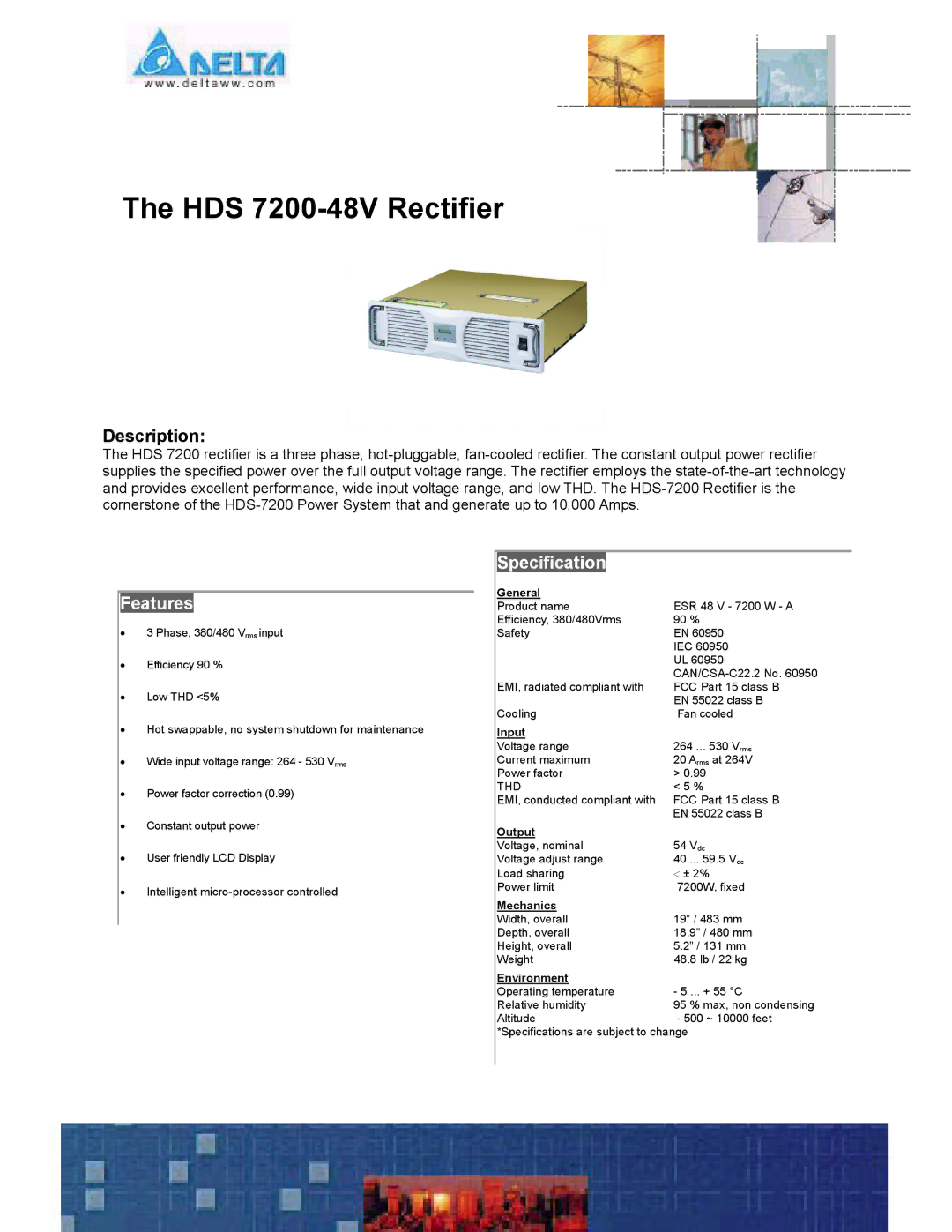7200 specifications
The Delta 7200 series is a highly advanced, versatile jet engine that has garnered attention for its performance, fuel efficiency, and reliability. Developed by Delta Aerospace, this engine line is aimed at various narrower-body and regional aircraft, providing a solid solution for airlines looking for durability and cost-effectiveness in their fleets.One of the key features of the Delta 7200 is its high bypass ratio design, which significantly contributes to its efficiency. By maximizing the proportion of air that bypasses the engine core, the Delta 7200 minimizes fuel burn while maintaining the thrust required for flight. The result is a considerable reduction in operating costs and emissions, making it a smart choice for airlines focused on sustainability.
The Delta 7200 integrates cutting-edge materials and technologies that enhance its performance. With advanced composite fan blades and a titanium-reinforced compressor section, this engine is built to withstand higher stresses while reducing weight. This weight reduction is crucial for improving overall aircraft performance, allowing for longer flights and increased payload capacities.
Another important characteristic of the Delta 7200 is its modular design. This approach allows for easier maintenance and quicker turnaround times, which are vital for airlines operating on tight schedules. The engine can be serviced with minimal downtime, ensuring that aircraft remain operational and profitable. Additionally, the engine's maintenance is supported by a global network of service centers, offering assistance to airlines worldwide.
Noise reduction technology is another standout feature of the Delta 7200. With the implementation of advanced noise-reducing strategies, this engine produces significantly lower noise levels, making it compliant with stringent regulatory standards and enhancing passenger comfort on the aircraft.
In terms of operational performance, the Delta 7200 demonstrates excellent thrust capabilities that cater to a variety of operational needs. From regional airports to busy international hubs, the engine's adaptability ensures that it meets the demands of diverse flying conditions.
Overall, the Delta 7200 series exemplifies innovation in engine design, emphasizing efficiency, reliability, and sustainability, making it a preferred choice for modern aviation needs. Airlines adopting this technology benefit from reduced operational costs while contributing to a greener future in air travel.


